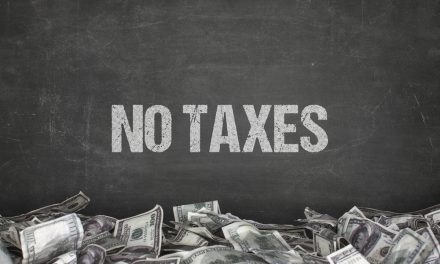I had a farm in Africa once … in fact, I still do.
Well, sort of a farm.
Back in 1996 I bought an old house built of Table Mountain stone.
It was originally an outbuilding of a farm south of Cape Town, South Africa. It was built in the 1850s as a stable for draft horses. It was converted to a residence sometime in the early 20th century.
I’ve lavished a lot of love and attention on that house in the last 20-odd years.
When I came to work in the U.S. in the late 2000s, my wife and I rented it out to my sister-in-law. That way we can use it when we make our annual pilgrimage back home during June and July.
Now, as anyone who’s ever rented to relatives can tell you, it doesn’t make being a landlord any easier.
It can even make it harder … relatives tend to expect a much lighter hand.
On top of that, maintaining a house over 160 years old takes work, even from afar. And when that house is next to one of the windiest bits of ocean in the world, salty air undoes much of that work pretty quickly.
To be honest, I’m not sure I would want to be landlord of this house if I didn’t still use and plan to retire in it. The effort just isn’t worth the reward.
But there’s another way to reap extraordinarily high profits from real estate investment … one that requires nothing more than a few clicks of your mouse…
REIT, Sweet and Petite
One of the most tax-advantaged forms of investment is hiding in plain sight … and one simple step could increase your profits from it by 12% or more every year.
Real estate investment trusts (REITs) are a special kind of company that does just one thing — invest in real estate. They trade on stock exchanges and produce both dividends and stock price appreciation.
And the IRS just loves them.
I asked Josh Bennett, a tax attorney friend of mine, to explain them in simple language.
“Congress gave REITs special tax treatment in 1960 to allow investors to reap gains from real estate investment without having to buy properties directly. In return, the tax code holds REITs to certain standards, outlined under Internal Revenue Code Section 856. These rules include:
- “REITs must have at least 100 shareholders after the entity’s first year (to prevent ‘personal REITs’).
- “At least 75% of total assets must be invested in real estate assets and cash, and at least 75% of gross income must be derived from real estate-related sources such as rental income and interest on mortgages.
- “REITs must distribute at least 90% of their income annually as dividends.”
Because REITs don’t pay corporate tax, more of their earnings is passed on as dividends to investors, who are taxed on that income.
Until 2018, REIT dividends were taxed at the individual shareholder’s ordinary rate. That was unlike corporate dividends, which were taxed at a lower rate if the investor held the shares for a set period.
That meant that although REIT dividend yields were much higher than for most corporations, they tended to attract a higher tax rate.
But starting in 2018, REIT dividends enjoyed a whole new tax benefit that is normally reserved for a select few taxpayers.
A New Tax Loophole for Investors
As I explained in my Bauman Letter report for March 2018, the Tax Cuts and Jobs Act of 2017 created a loophole for owners of companies known as “pass-throughs.”
These are companies, like limited liability corporations, partnerships and sole proprietorships, that don’t pay corporate income tax. Instead, their profits “pass through” to their owners, who pay taxes on that income at ordinary rates.
Under the Act, the owners of pass-throughs don’t pay any tax at all on 20% of those profits. Nada.
And here’s the great thing: REITs are officially considered pass-throughs. If you own shares in a REIT, 20% of your dividend income is exempt from taxation.
This 20% pass-through deduction reduces the top tax rate on REIT dividends from 39.6% to 29.6% for a taxpayer in the highest tax bracket. Here’s the math for such a taxpayer:
- REIT Dividends: $10,000.
- 20% Deduction: $2,000.
- Taxable Profits: $8,000.
- Tax Rate: 37%.
- Tax Bill BEFORE the 20% Deduction: $3,700.
- Tax Bill AFTER the 20% Deduction: $2,960.
- Savings: $740.
- Additional Profits From REIT Investment: 11.7%.
Shareholders in lower brackets would have even lower rates on the same dividends!
What must you do to benefit from this? Nothing, really.
If you own its shares, every year you’ll get a tax form from a REIT that shows your dividend income.
It will also show your taxable dividend income, which includes the 20% tax-free deduction. That’s the amount you enter on your IRS Form 1040.
You just add it to your ordinary income. It doesn’t require itemized deductions.
A No-Brainer
Plus, my attorney friend Josh adds: “Because of the 20% tax exemption, REIT income is taxed at a lower rate than regular rental income — which doesn’t get such a deduction.”
That makes REITs the obvious choice for any wannabe landlord. You won’t have to worry about tenants, repairs, insurance or anything else. And you’ll make more money!
If you’re interested in taking advantage of the opportunity to increase your profits by 12% with no effort at all, I encourage you to check out The Bauman Letter. My report for May includes one of the hottest REITs on the market today … with soaring dividend yields and a soaring stock price to boot!
Kind regards,

Ted Bauman
Editor, The Bauman Letter









